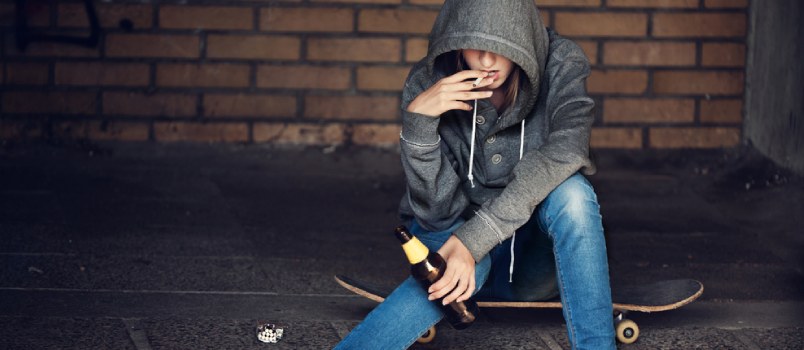5 Parenting Tips on How to Keep Kids off Drugs

Unlock Daily 30-Sec Tips for a Happier Relationship
👉 Subscribe FREEKey Takeaways
Marriage.com AI Quick Summary
It’s something every parent worries about how to raise a child so that they say no to drugs and other mind-altering substances. The recent movie (and true story) Beautiful Boy shows us a frightening portrait of teenage addiction, one where the boy had his first puff of marijuana at age 11 which turned into a full-blown addiction that nearly killed him several times.
It’s a parent’s worst nightmare brought to the screen. But even if you watch that movie with your children, thinking it could be a deterrent to any potential drug experimentation your children may be tempted to try, would seeing what addiction looks like be enough to stop your child from doing drugs? After all, in his mind, “everybody is doing it, and no one is getting hurt.”
Experts who work with addiction issues, especially teenage addicts, all agree that the best way to keep kids off drugs is through early childhood education – education that involves building self-esteem, developing skills that allow your child to say no thank you without feeling any shame, and wanting to do the best by their body and mind.
A child who has a healthy outlook on life and on their role in the world is much less tempted to zone out with drugs. A child who feels a sense of purpose, meaning, and self-love has little interest in taking that all away for a hallucinatory trip.
There is a lot of research that proves that environment in the child’s home is the most influential factor in determining whether a child will become addicted to drugs. While this finding may be reassuring to parents who fear toxic peer pressure on their children, it can also cause anxiety by placing a huge responsibility on the parental role.
Many parents wonder what the most important factors are and how to keep kids off drugs? Should they set firm limits and consequences? How involved should they be in their children’s lives? What should they tell their children about drugs?
Why are drugs attractive to some kids and not to others?
The research is fairly clear – drug and drug addiction is a symptom of a deeper pain. Teenagers often start experimenting with drugs to numb themselves from the emotional highs and lows that we all go through during adolescence. They enter into these tumultuous years ill-equipped to ride out the rocky bumps of this life passage. They take a first hit off of a friend’s joint, or sniff a line of coke, and suddenly everything becomes easy to navigate.
And there lies the danger!
Rather than learn the coping skills that are essential to becoming an adult, the teenager goes back again and again to the substance that allowed them not to feel.
A feedback loop is installed: hard times —>take some drugs—>feel great.
To avoid this trap, you must teach your child from a tender age the gift of developing coping skills.
So, the question is how to keep kids off drugs? The five basic principles of raising kids who will say no to drugs –
1. Spend time with your children
From infancy, make spending time with your children a priority. When you are with them, do not be on your phone. We’ve all seen the moms sitting on the park bench at the playground, immersed in their smart phone while their child shouts “look at me mommy, watch me go down the slide!”
How heartbreaking when mommy doesn’t even look up. If you are tempted by your phone, do not take it with you when you are out and about with your child.
Why is spending time with your children so vital?
It is vital because addictive behaviour in children develops not from lack of parental discipline, but from a lack of connection. Children who do not feel close to mom or dad, who feel ignored, are much more at risk of substance abuse.
2. Discipline your child, but fairly and with logical consequences
Studies have shown that teenagers who get into drugs more often than not have parents who used authoritarian discipline techniques, a sort of “my way or the highway” approach. This can lead a child to become secretive, hiding any bad behaviours.
They will use drugs as a sort of rebellion against their parents’ dictatorship attitude. So, how to keep kids off drugs? Simple! Just practice gentle discipline, making the punishment a logical consequence fitting the bad behaviour, and be consistent with your punishment so that the child understands limits.
3. Teach your child that feeling emotions is good
A child who learns that it is ok to feel is a child who is less at risk of turning to substances to try and negate bad feelings.
Teach your child how to navigate the sad times, giving them support and reassurance that things will not always feel this bad.
4. Be a positive role model
If you come home, pour yourself a scotch or two and say “Oh man, this will take the edge off. I’ve had a rough day!”, don’t be surprised that your child is going to mirror that type of behaviour and think that an external substance is necessary in order to deal with stress.
So have a good look at your own habits, including prescription drug use, and adjust accordingly. If you need help with alcohol or drug addiction, seek support for yourself.
5. Educate your child with age-appropriate information
Your three-year old won’t understand a lecture about how addictive cocaine is. But, they can understand when you teach them about avoiding poisonous products, not taking medicine unless it is medically necessary, and how to fuel their body with good, nutritious fruits and vegetables.
So start small when they are small, and scale up with the information as your child grows. When they reach their teenage years, use teachable moments (such as watching the film Beautiful Boy, or other depictions of addition in the media) as a springboard for communicating. Make sure your teenagers understand how addiction develops, and that it can happen to anyone regardless of income, education, age.
Addicts are not “just homeless people”.
So to answer your question, how to keep kids off drugs, here are the five points to keep in mind.
 Tips
Tips
Write your tip or submit a video tip
All tips are reviewed before the publishing.
Share this article on
Want to have a happier, healthier marriage?
If you feel disconnected or frustrated about the state of your marriage but want to avoid separation and/or divorce, the marriage.com course meant for married couples is an excellent resource to help you overcome the most challenging aspects of being married.
Recent Articles
Related Quizzes
Unlock Daily 30-Sec Tips for a Happier, Healthier Relationship
👉 Subscribe FREE on YouTube We'd love your feedback!
We'd love your feedback!
 Expert Q&A
Expert Q&A
Ask your question related to this topic & get the support you deserve from experts.



















 Thanks for your feedback!
Thanks for your feedback!